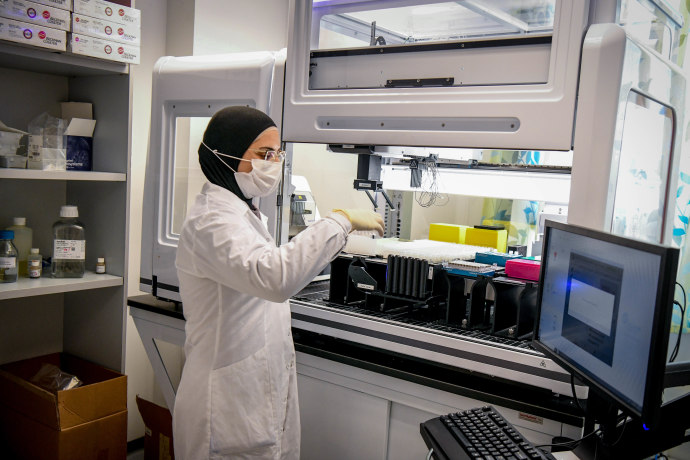US regulators on Tuesday authorized a second booster dose of the two most commonly used COVID-19 vaccines for people age 50 and older, given data showing waning immunity and the risks posed by Omicron variants of the virus.
The US Food and Drug Administration said the new boosters - a fourth round of shots for most vaccine recipients - of the Pfizer Inc/BioNTech and Moderna Inc vaccines are to be administered at least four months after the previous dose. They are intended to offer more protection against severe disease and hospitalization.
The FDA also authorized the second booster dose of the vaccines for younger people with compromised immune systems - those aged 12 and older for the Pfizer/BioNTech shot and 18 and older for Moderna's.
The authorization comes as some scientists have raised concerns about the highly contagious BA.2 Omicron subvariant, which has driven new spikes in COVID-19 cases in other countries.
COVID-19 cases in the United States have dropped sharply since a record surge in January, but have seen a small uptick over the past week, according to data from the US Centers for Disease Control and Prevention.

"While this EUA (emergency use authorization) will help address a current need for some, we're working diligently to develop an updated vaccine that not only protects against current COVID-19 strains, but also provides more durable responses," Pfizer Chief Executive Albert Bourla said in a statement.
Pfizer and BioNTech originally asked for the next booster doses to be authorized for people 65 and older in a submission citing data collected in Israel, where a second booster is already authorized for many people over age 18. Read full story The companies and the FDA did not explain why the age range had been expanded.
Scientists and officials have debated whether young, healthy people will need a fourth shot. A study of Israeli healthcare workers suggested that the fourth dose added little additional protection in the age group.
Biden administration officials have said that the US government currently has enough doses of the vaccines to meet the demand for another round of booster shots in older Americans, even as funding for the US pandemic response has all but run out.
They say that unless Congress approves more spending, the government will not be likely to be able to pay for future inoculations, if they are needed, particularly if the vaccines need to be redesigned to target new variants.
